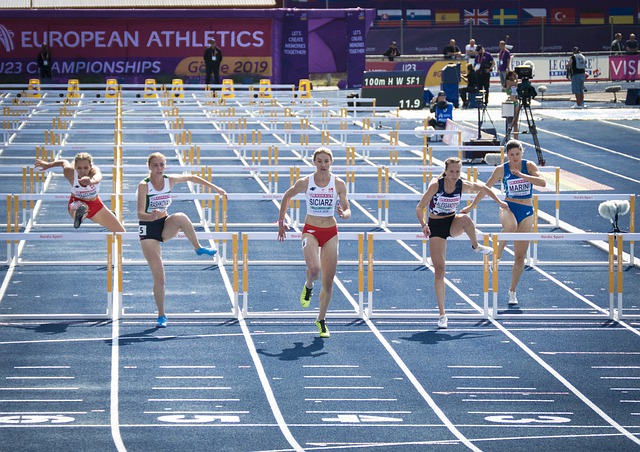
A competition can be a sporting confrontation.
The meaning of the word competition (from the Latin competentia ) has two main aspects: on the one hand, it refers to the confrontation or struggle carried out by two or more subjects regarding something. In the same sense, it refers to the rivalry between those who seek to access the same thing, to the reality experienced by companies that fight in a certain sector of the market when selling or demanding the same good or service, and to the competition that takes place. carried out in the field of sport .
Some examples where the term appears: «The World Championship is a very tough competition that always ends up rewarding the best» , «The competition for the position of manager has me a little worried» , «I propose a competition: whoever arrives first Alan's house wins .
Competence as skill and expertise
On the other hand, the term competence is linked to the capacity , ability , skill or expertise to do something specific or deal with a specific issue: "Judge Lalotto does not have the jurisdiction to rule on these matters," "The manager demonstrated their competition by calming customers and reducing conflict .
This last example can be understood if we explain the following. Within a jurisdiction, that is, the power that administers justice in a State, jurisdiction is the way in which said work is carried out and is framed in a context of subject, degree, shift, territory and quantity. That is to say, it refers to the power given to a judge to be able to distinguish the appropriate way to resolve a certain conflict.
There are several types of jurisdiction in this context: objective (limited by the subject), functional (related to judicial bodies to different degrees) and territorial (space that corresponds to a court).
The concept in the field of biology, sports and economics
In biology , competition is a type of interspecific link between various subjects of different species, but that have the same trophic capacity.
In the world of sports , competition involves a classification , with winners and losers, and the awarding of some type of prize, trophy or recognition. There are different competition systems depending on the sport modality.
Finally, we can point out that, in the economy , competition is a context that appears when economic actors are free to participate in the market through the supply and demand of products and services. This means that, when there is competition, there are various suppliers and demanders.

In some contexts, competencies are skills, abilities or knowledge.
Types of competence in conceptual pedagogy
In Conceptual Pedagogy the concept of competence is used to analyze the development of thinking. This concept is closely related to the formation and way in which mental structures are modified in order to capture a clearer vision of reality. In this area, competition can be understood in various ways.
When it refers to ability , it means that the student knows how to do a certain thing according to the learning acquired. It means that the student not only learns concepts but also assimilates the way in which they can apply them.
When the concept is used in the context of competitiveness , it refers to the person's ability to demonstrate that their way of resolving a certain conflict or doing something specific is the best that exists.
When reference is made to competence from incumbency , we are talking about the student's ability to relate their learned concepts to the reality that surrounds them. Competencies allow the individual to get involved in their environment in a responsible and ethical way.
We can say that in Conceptual Pedagogy the competence consists of a cognitivist vision. Understanding it as the way in which mental processes related to the interpretation and argumentation of knowledge and its use in daily life are developed.
